@amelia.moseman (questioneer, words)
@cole.kincart (photography, interjections)
@trumansinclairr @a.jesperson_ (talent)
If you ever find yourself in Gill, Massachusetts, looking for a place that provides the perfect backdrop for easy conversation and maybe also a photoshoot, might I suggest the Wagon Wheel Country Drive-In. The diner has the vibe of the classics—melts, burgers, soups, an ice cream bar, the constant hum of conversation and clattering silverware—but plays host to the kind of fresh dialogue only achieved by sitting ’round a table with the squad.
It would be especially perfect if that conversation were to be with one Truman Sinclair, a singer-songwriter out of Los Angeles whose music carries the same sort of duality: paying homage to the classics while boasting a unique, contemporary twist.
If only someone were to do such a thing…
Well, not to toot our own horn, but Cole and I took to the road last weekend to do just that. Meeting Sinclair and his entourage of manager Autry Jesperson, bassist Ronen Ku and drummer Ben Lopez just after their set at the Green River Festival, we spent the afternoon getting to know Sinclair and his most recent work American Recordings. We discussed having things to say when you turn 22, saying them without really saying them, and embracing the cyclical emotions of creativity.
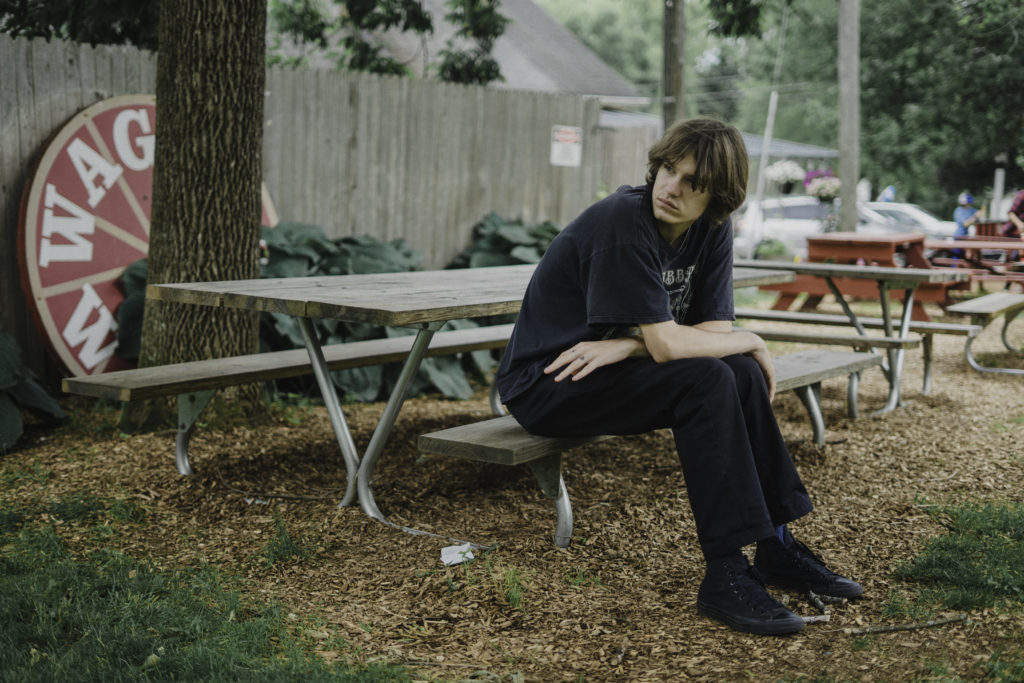
A little bit of background: Sinclair spent his childhood in the quiet suburb of Evanston before moving to big, bright LA when he was 14. He’s been making music practically his whole life, playing in friends’ garages, his bedroom—wherever there was a place and a people to play. In the move, he packed up his midwest roots, and repackaged them into his first project: an emo band called “Frat Mouse”.
American Recordings is Sinclair’s debut solo album. It’s more folk oriented than Frat Mouse, inspired by the music he grew up on. The album is produced entirely by Sinclair, bred by a degree in Music Production from USC and years of DIY experience. I won’t spoil the process too much—we talk about it later—but this album has Truman Sinclair written all over it.
The album takes you on a sonic journey through America, drawing up imagery of the expansive west and telling stories of times gone by. Chicago Flood, the opening track, is a call to arms—a mobilization that sets up the exploration of the rest of the album.
I never know / where I’m going / but I go
“Gold Star” and “What’s On Your Mind?” evoke the feelings of meandering down an open road, giving into the whims of your surroundings. On the latter half of the album, Sinclair flexes intricate lyricism through detailed storytelling with “Joel Roberts”, “Frank”, and “Mary”. The tracklist is rounded out by “Black Train”, a nod to both Woody Guthrie and the disasters of climate change.
Throughout, Sinclair expertly mixes deep appreciation for the past with his own insights and musical inclinations. The result is an album that’s familiar, genuine, and easy to listen to.
But enough of my own analysis, let’s hear what Truman had to say:
Amelia: Cool name aside, who is Truman Sinclair?
Sinclair: Oh, sick. I’m happy my name is cool. That’s dope.
I’m from Chicago. I love to play music. I don’t know what got me into it even necessarily. I don’t necessarily come from a musical family, but I just have always been sort of ridiculously addicted to music in all forms. Like listening to it and making it and writing it.
I’ve been in bands in LA for like five or six years and I just recently stepped out to do this solo thing because I just felt like I just had something to say, you know, at a certain point.
A: Well, we already talked a little bit about the Chicago ties, but obviously we’re from Chicago, so we want to hear— what are your ties to Chicago and if they mean anything to you?
S: I’m from Evanston and it was like sort of sleepy, but I had a really good friend who had a garage with a drum kit in it and I feel like that was like church kind of thing, like we would go there every single day after school and just like fucking play and it was the best and I think that’s—that’s probably how I got originally into it. That was the way I made friends, that was what we did. It’s kind of like my scene that I was always in, so that was what was nice about living in somewhere kind of quiet.
Cole: You said your family wasn’t really big like musically, but were there any big albums like you gravitated to as a child?
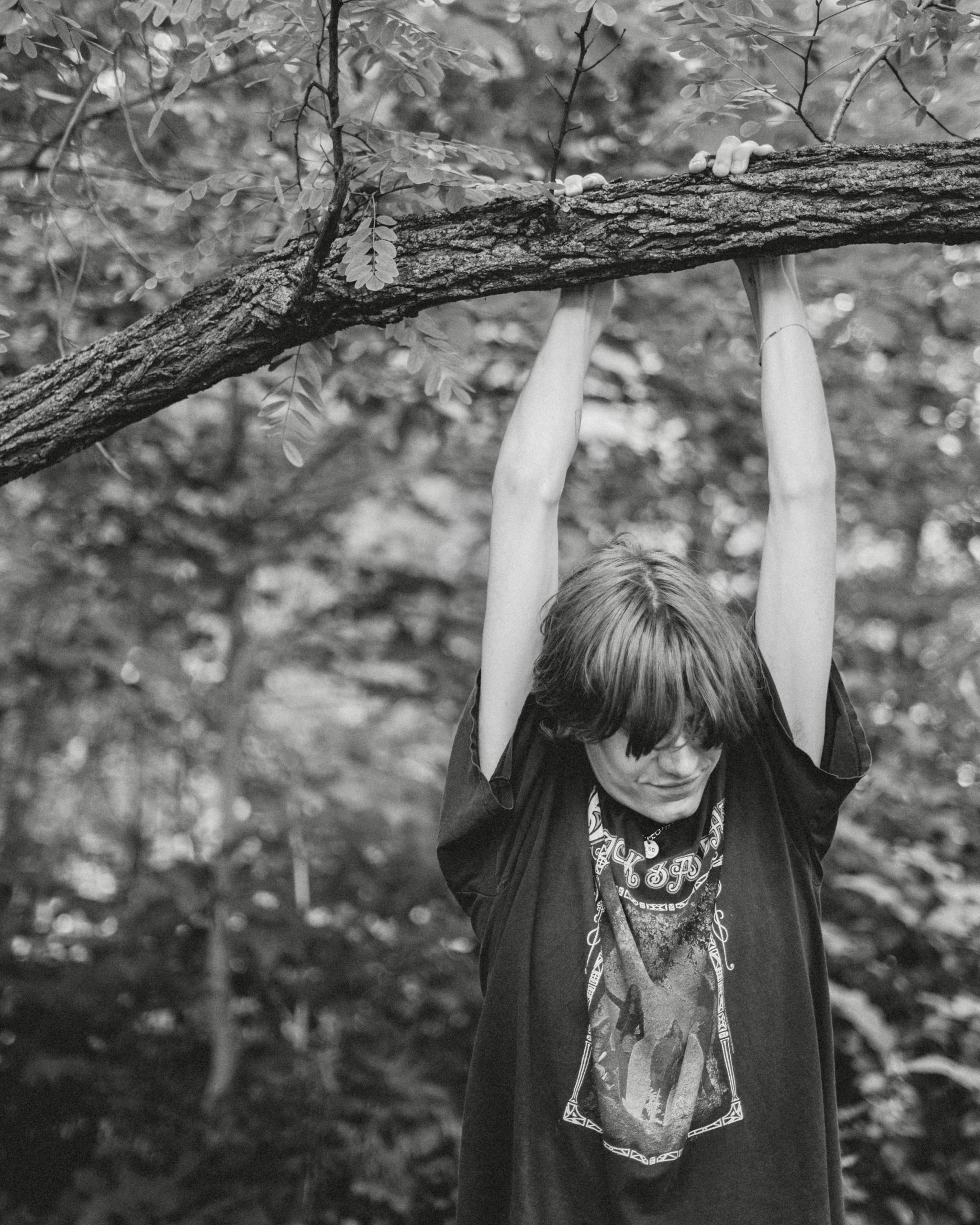
S: Well, my dad’s like an all-time Springsteen fan, so he would listen to the E Street Radio in his car all the time and he took me to some shows. Obviously when you’re a little kid that explodes your brain when you see a show like that, especially when your dad’s into it, because you’re like “Oh this is cool as fuck”. And then my mom loves a lot of Laurel Canyon songwriters like James Taylor and The Eagles—which I don’t know if I rep necessarily—but I love James Taylor and like Carol King and you know like Crosby, Stills, Nash, and Young, especially Young though…
A: Does your family like your music?
S: Yeah, I think now they do even more than they used to. Well, no, they’ve actually always been extremely supportive. They always were super into it. Especially because we were in LA, they’re like just go do it—this is the town to do it in, like see if you can. Yeah, I guess they liked it because they saw how much joy it brought me.
A: Well, we can talk about your first album, American Recordings! What I know is: it’s your first album as Truman Sinclair, you produced it, it’s really— it’s very, rooted in kind of the classic country tradition of storytelling, but I guess I want to know about the process, just kind of how it came to be.
S: Yeah, well, I recorded it all largely alone. I had some friends come over to play some certain specific parts, and I had Ben play all the drums. Obviously, I didn’t do that [play drums], but I recorded it mostly alone.
I was waking up super early, like 5 or 6 a.m. to record before class. I’m kind of a morning person, so I wasn’t good at doing it at night. I’d just wake up super early and record every day. And it was over a three-month period that I made most of it, basically, during those three months. And I was recording a lot in the morning and everything.
I just—I turned 22 and because I love music I was always obsessed with the lives of musicians that I love, and I just know so many musicians that I love made their first record when they were 22. I like to think about music like it’s this big conversation kind of thing, different people say different shit, and I was like, okay, I feel like I’m gonna fucking put my token down on what I think would be cool to make right now.
So I was listening to a lot of old music and new music and thinking about how music has evolved and I just wanted to make something that felt like it was rooted in like the history of music, but also new and do something that is what I would want to say right now. I just got really inspired basically, and I was like I’m just gonna fucking make this shit, in this shed, alone.
It was a lot of fucking just being alone, and like in this shed, but it was a really special thing for me. It was like one of the best parts of my life ever, because it was so satisfying, because it fucking started working, and I was like, this is cool, and different, and nothing I’ve ever made. I think a lot of the music I’ve made before, I had like a certain goal. This was like I’m just gonna make what I would make right now in the best way, so that I can say the shit that I want to say. It was more natural in a sense.
A: That seems to work out the best.
S: Yeah, I kind of learned that.
Jesperson: You should talk about this shed.
S: Yeah, I had a shed, I was living in this—I was going to USC—and I was living in this house with like eight other musicians called Flea House that had fleas. It was like super decrepit and horrible, but it was also awesome because we were having a great time.
A: Wait, like it had fleas? Or are you guys the fleas?
S: Well, we became the fleas. It was like that was kind of what it became, but it was called Flea House because there were fleas. [But] behind it there was this old garage that I basically put a bunch of music shit in and made it like a pseudo recording studio—I mean I was recording on a laptop—but it was like I had a space to do it.
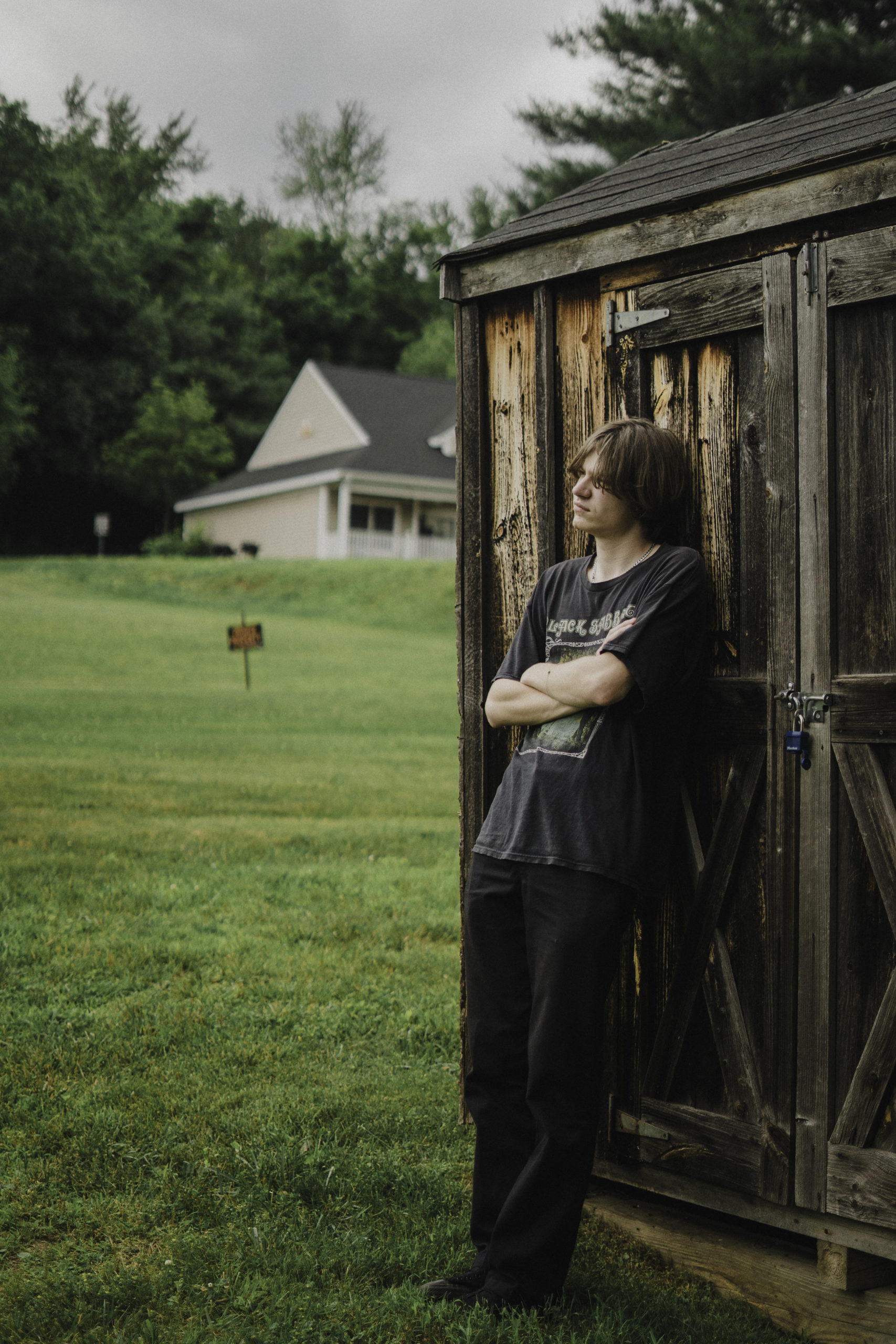
A: That is like the life of an obsessive musician.
S: It was yeah, I mean it’s—I’ve always been that obsessed.
It’s like one of the things that I just literally think about it 24/7 because it’s like—I feel very blessed to have something like that, honestly, but I have I have a legit ass life goal which I think is a really big blessing and I just focus on all the time.
C: You gotta make those Ashton Paul TikTok videos with the timestamps. You know that one guy who’s gotten popular who does the water bowl and the banana? With the timestamp, the morning routine at 3 in the morning—
S: Oh, yeah, I gotta do that. So you wake up at 5am, write a generational classic banger, then you go to class. Yeah, I wish.
Honestly, most of my time spent obsessing over music is trying to write a song and not doing it right, and being so depressed. And then doing that over and over again until you write one when you’re like, yes, I actually like this one. And then it’s like a sick day. And then you wake up the next day and you’re like, “I’m washed up. I gotta do it again”. So that’s pretty much my whole life, honestly. But it’s fun. I do feel blessed about it, honestly, for real.
A: What’s your favorite song on the album? Lyrically and then maybe sonically as well.
C: Or even just to play?
S: I really like the song Bloodline because I think that was one of the more…The songs came about in a multitude of different ways. Some of them I really worked on, some of them I had like a little bit of and then I changed it, and then some of them I had the melody and it took me a couple weeks to figure out what I wanted to say, but that one I just like sat down and wrote the whole entire thing on a sheet of paper and had everything and just recorded it. It was fun and I was like “wow this is crazy”, and it was one of those kind of flow state writing things where I didn’t necessarily have an intention but it says everything that I wanted to say at that time in a way that I really thought was like satisfying. Like, okay, [I] got that all out of me in one fell swoop. It was just kind of clean. It’s like a really clean experience.
A: One of those highs.
S: Yeah, it was great. I got severely depressed like the next day. Yeah, literally no dead ass dude, like why can’t I just do that every time? But just isn’t how it works.
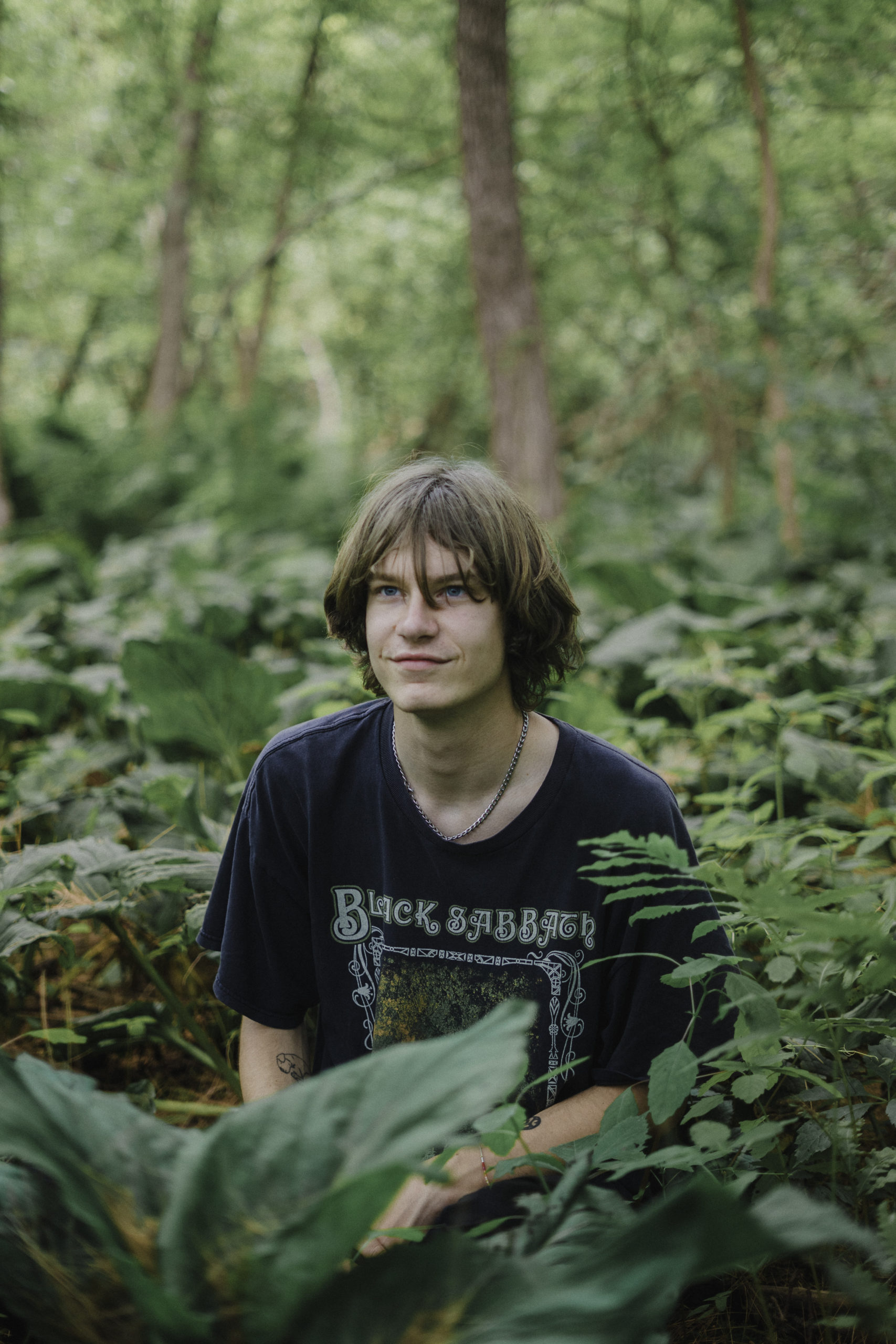
A: I actually kind of found you like a couple of years ago at TikTok—Joel Roberts I remember did a couple of videos of that. Do you like doing that kind of stuff, like making videos? And do you feel like it connects you to people out there? Or is it more like a necessary evil kind of thing?
S: I think for the longest time, I didn’t do it. Because, you know, like, I never did it for Frat Mouse or anything like that. Well, we did a little bit. It wasn’t like that. It wasn’t a—like, I started doing it for this.
Basically, for a while, I didn’t want to do it. And then, I realized that it’s…Well, [Autry] really, he was like, “Dude, you should do it. It’s like, you get to catalog your songs. It’s like a digital open mic”, which that fucking dope I was like, oh, digital open mic. Very interesting. Yeah, we gotta log that—
A: You gotta trademark that.
S: Yeah, that’s a great one. So, I just started doing it.
And I also think it’s kind of—If you’re gonna be an artist, which is kind of a funny thing, you have to make the shit cool that you want to do. Like, there’s a way to do it where it would be cool. You don’t have to do this shit that you think is corny. If you think it’s fucking lame, then don’t do that. Do something that you don’t think is lame.
A: Ok, we have a few rapid-fire questions for you.
Would you rather be stuck in a Chicago Flood or the Chicago Fire?
S: Oh, God. That’s so hard. Burn to death or drown? That’s where we’re at right now? Um probably drown in the Chicago Flood, I guess.
J: That song’s a banger too.
A: Would you rather be trapped in the Truman Show or at a Sinclair gas station?
S: Oh, a Sinclair gas station. I love a Sinclair gas station, dude. I feel like I’m home dude.
(He did clarify that this is purely to do with the name and marketing—not so much the business of big oil)
A: Cowboy or Samurai?
Cowboy. But it’s close. Samurai are so cool.
C: If you add pirate, does that change anything?
S: A cowboy pirate Samurai is probably the best, honestly, a merging of the three.
J: I dressed up as a pirate every year for Halloween for legitimately like nine years. And you just—he just wrote a new song called Pirates.
A: If you had a horse, what would you name it?
S: Truck.
A: East Coast or West Coast?
S: West Coast. I think it’s beautiful. I think it’s like, the real answer is that there’s like no winner, and there’s dope shit on either side.
Unfortunately, that’s all the time we have for today.
Sinclair had many good things to say, but as we talked there was one thread that wove itself into every answer he knit: he just Really Loves Music. It’s rare, and refreshing, to see this sort of singular passion in a generation that is riddled with distraction and raised on a false definition of productivity. Sinclair’s commitment is more than evident in American Recordings, and bodes well for the music to be made, and things to be said, in the years after turning 22.
If there’s anywhere that could rival the Wagon Wheel for a chat with Truman Sinclair, it’d be a stage in Chicago. We’re hoping that day comes soon, but until then, we’ll be following wherever he may go.
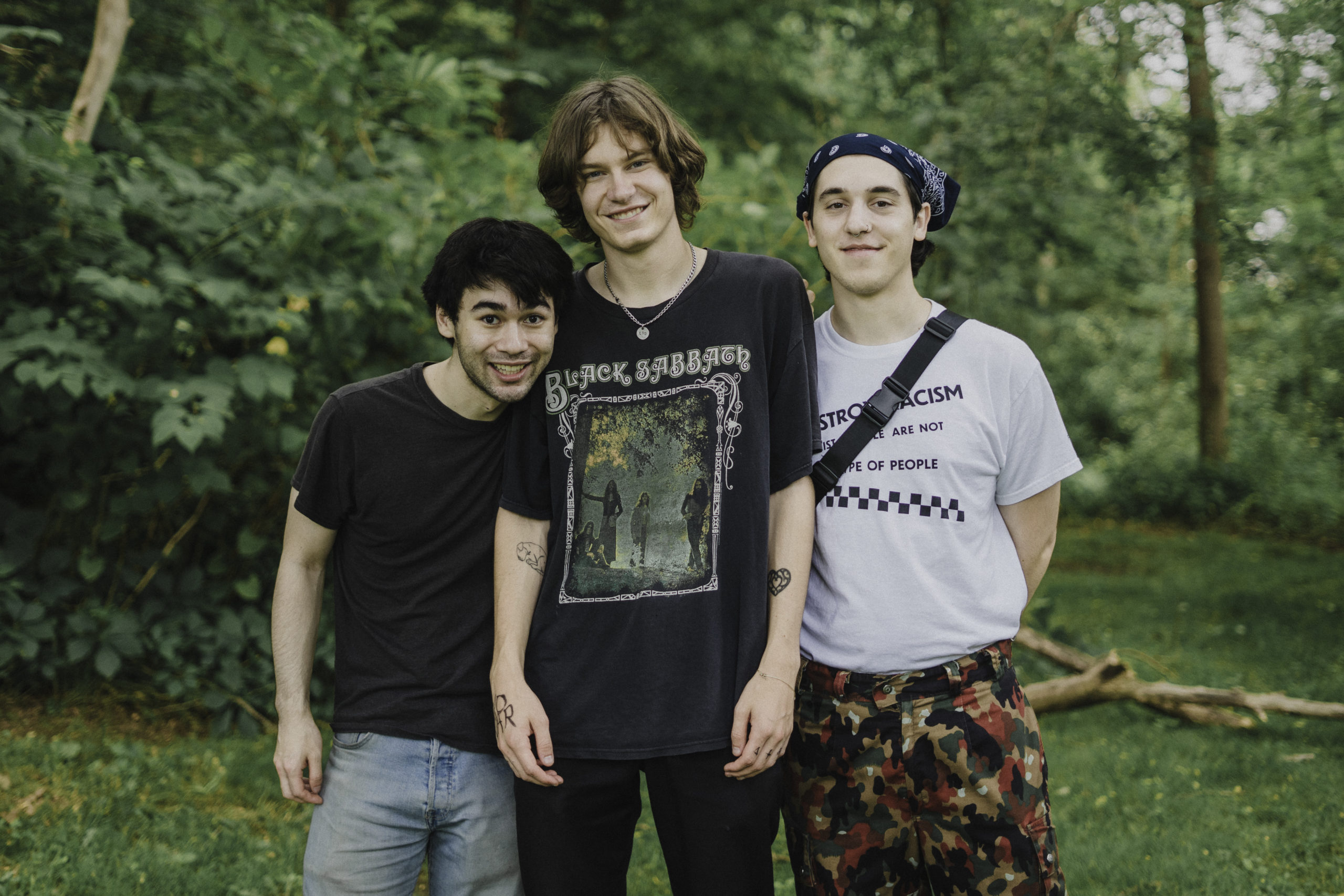

Leave a Reply